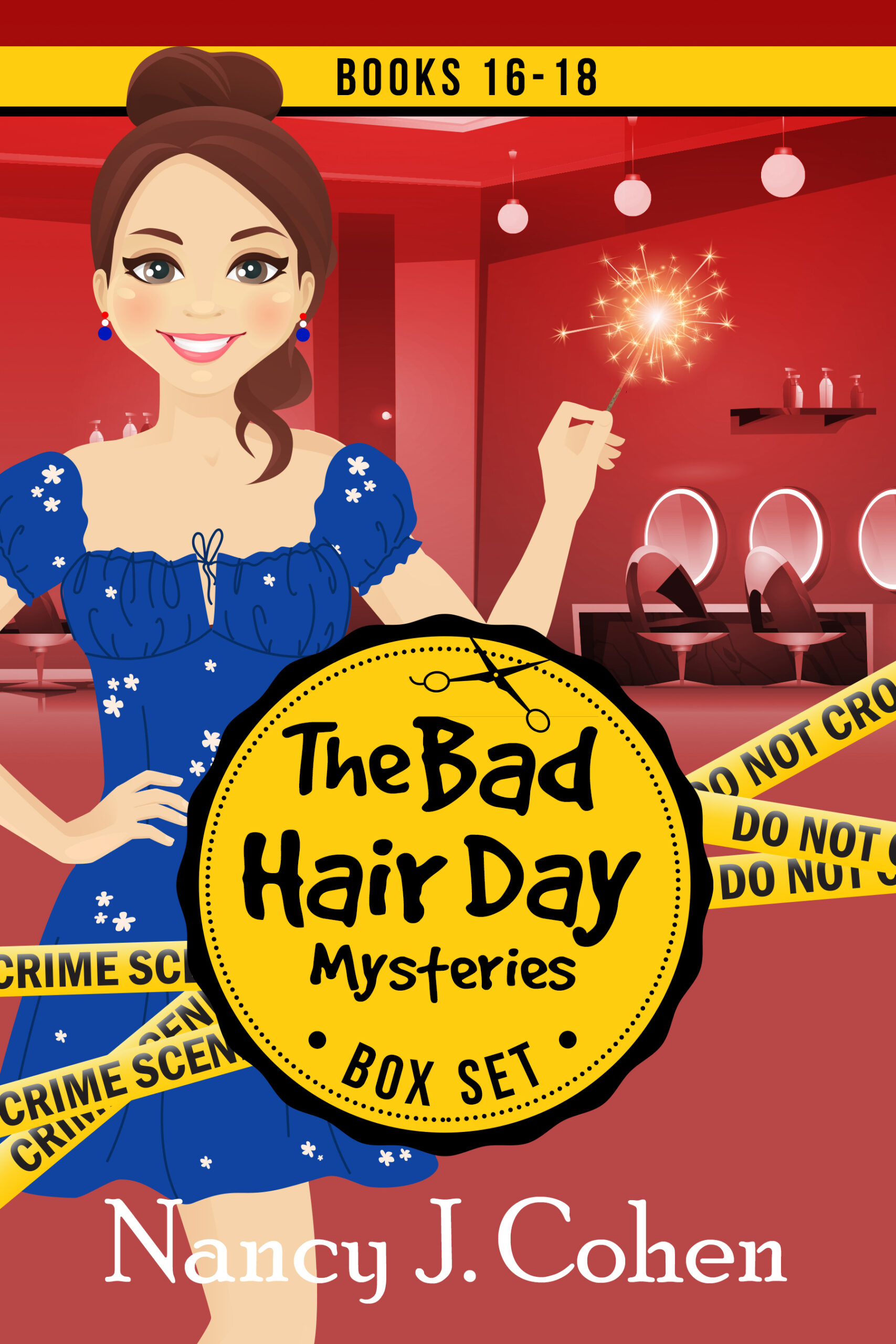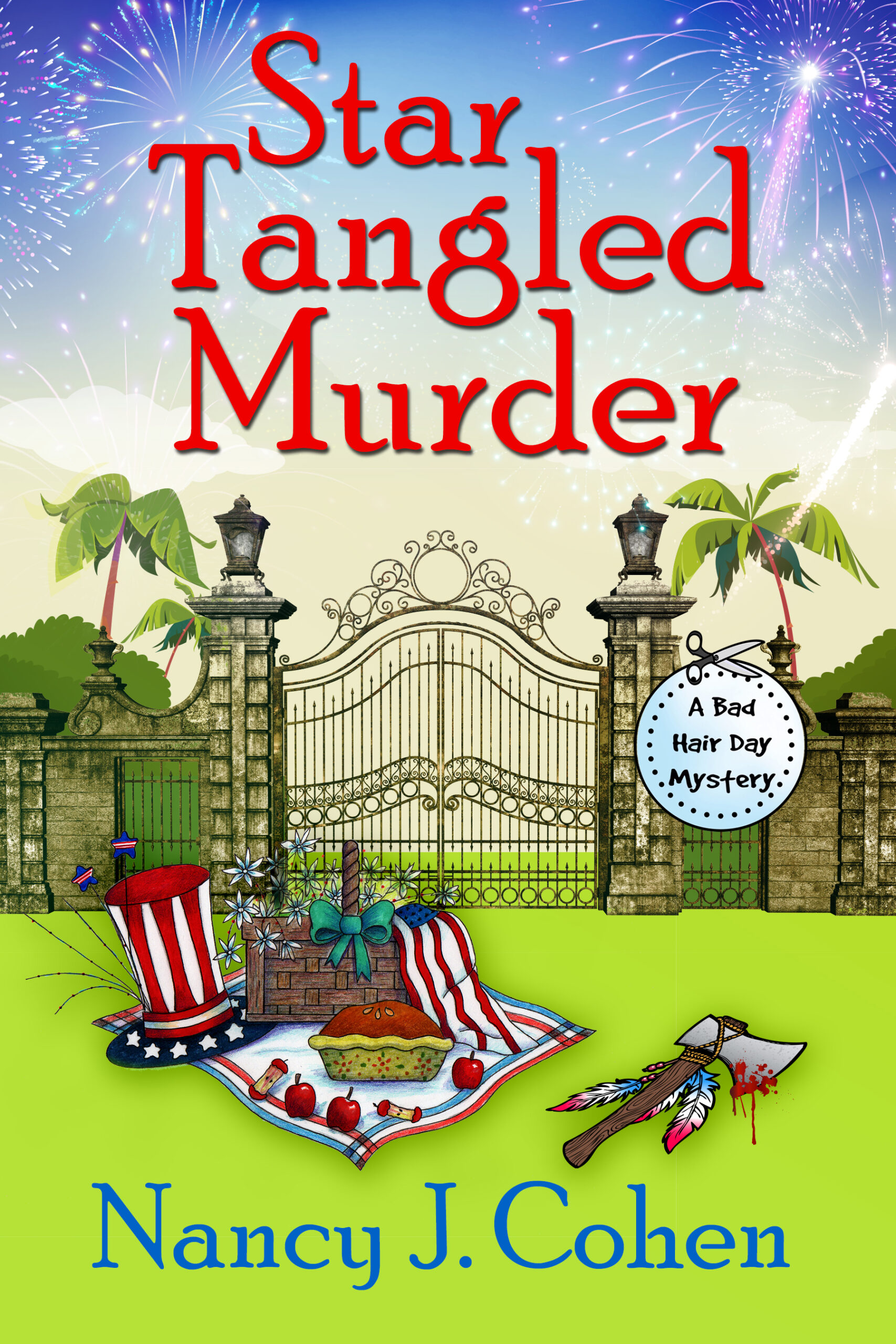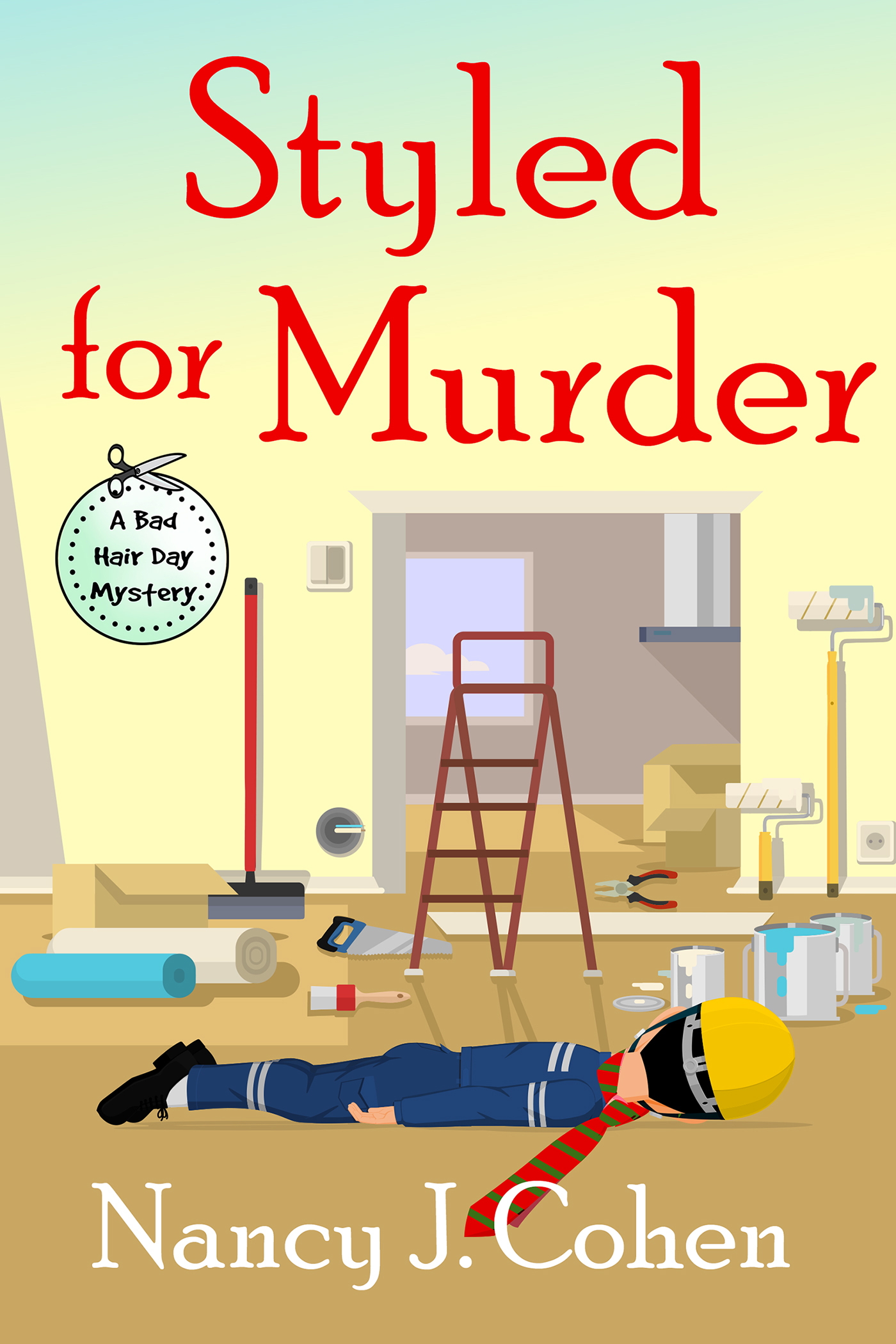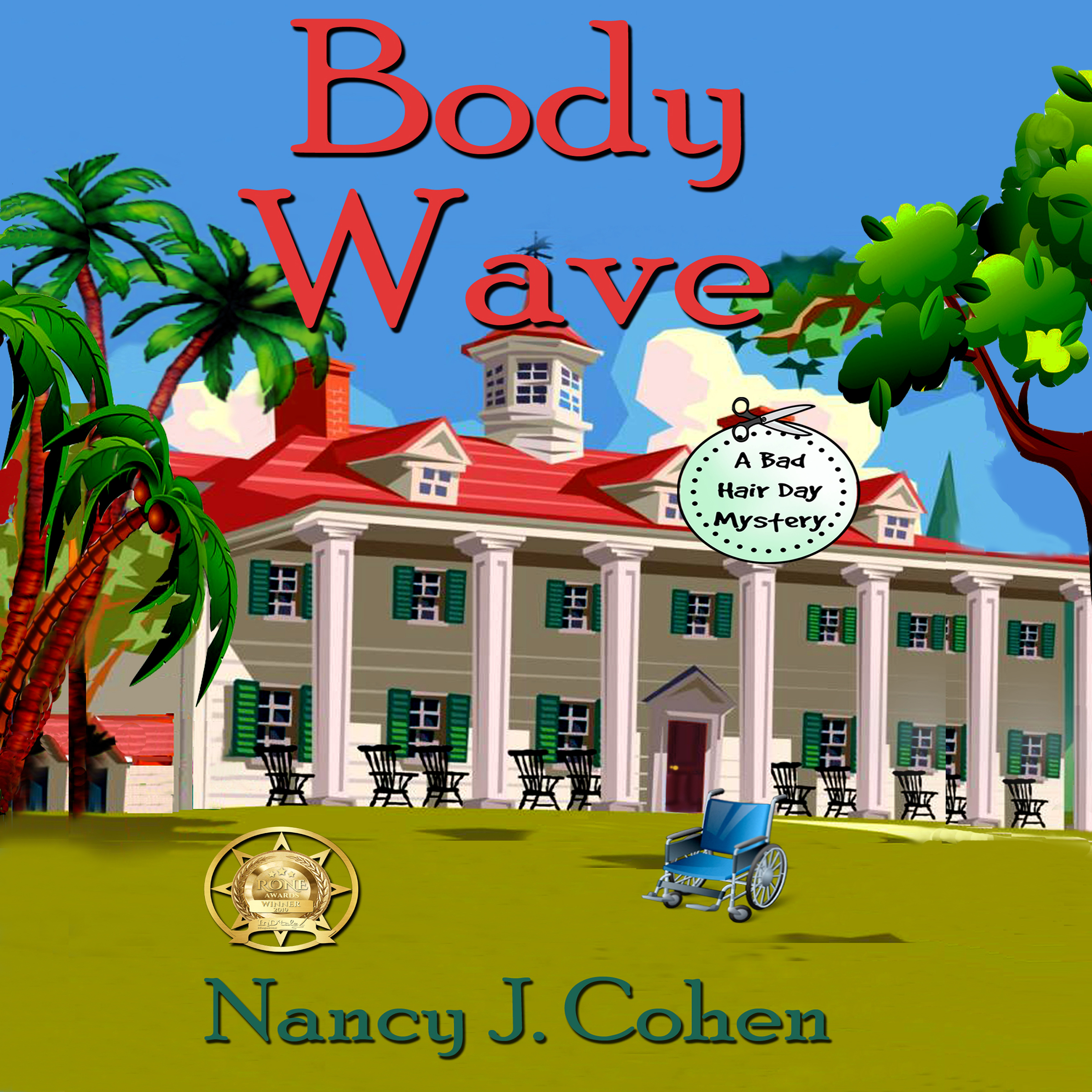The words “What If?” are at the heart of every plot. Currently I’m in the throes of plotting my next Bad Hair Day mystery. Having already written the draft of a synopsis, I welcome the “what if’s” that are flying into my brain.
What if the rivalry between ranchers Hugh and Raymond has a personal basis involving Hugh’s dead wife? What if the murdered forest ranger’s spouse had gotten turned down for a loan to start a business? Would that have induced her to take out a life insurance policy on her husband? What if the bad guy is selling his valuable ore to terrorists who resell it in exchange for weapons? What if….?
Once the story elements are in your head, your subconscious goes to work and new ideas keep popping up. Some are viable. Others get discarded as unrealistic. It’s wonderful when you get to this stage because the connections start snapping together. Pieces of the puzzle coalesce into a whole, and your story is ready for writing. But how do you reach this pinnacle of inspiration?
You begin with a story premise. In a mystery, it might be the victim. Who’d want to kill him and why? You sketch the suspects in your mind. Friends, family, and business associates who might have something to gain go on your list. What if suspect A’s wife was having an affair with the victim? And what if the husband discovered their liaison? What if suspect C owed the victim money? Or maybe the victim was extorting money from a colleague, knowing something that would get the guy fired. You examine their motives, seeking the secrets these people would do anything to hide.
Keep in mind that plot is not story. Plot is the background, the secrets everyone is keeping, the motive for the murder, the devious scheme created by the villain. You are creating a tapestry that leads to the opening scene. That’s where the story starts and moves forward.
In a romance, you’ll want to determine the first meet between hero and heroine. They’re attracted to each other but initially sparks fly between them. What if…they had a history together? Or what if she hates him because…? What if they have to work together in order to…?
Or a thriller: What’s at stake? Who is behind the dastardly scheme for world domination this time? Who’s the hero? What resources does he possess? How is he going to hit the ground running? What if…he’s semi-retired and he first gets wind something is wrong when…? He’s recalled to duty? He meets his old girlfriend and she says….? Or what if she’s in trouble? What if he receives a cryptic note from her?
Whenever I get ideas relevant to the plot, I jot them down in a plotting file for that book title. I may use them or not, but this way I don’t lose them.
Being a plotter and not a pantser, I write a complete synopsis before I begin writing the story. This synopsis may go through numerous drafts before I get it right. I pass it through my critique partners and make more changes. I ask my husband to read it so he can evaluate the logic. He’s good at catching things that don’t make sense or need clarification. In the case of my current WIP, I’m consulting my cousin who lives in the area where the story is set. She’s been invaluable in pointing out what works and what doesn’t.
I’ve been doing research on the Internet as I go along. I have a whole page of links and topics to explore. It comes to mind that I’ve been calling the law enforcement officer in the story a sheriff. Is this appropriate to the location? What’s the difference between a sheriff and a police chief? Does a sheriff only work for the county? Does this apply to a state other than Florida? Another item to research goes on my list.
Meanwhile, what other motives might people have for doing in the victim? What hidden connections might exist between my characters? Often these secrets reveal themselves during the actual writing process. New angles spring to life, taking the story in a new direction. But before you get there, you have to lay the foundation.
These story details possess you and take over your mind. You think about them all your waking moments. The plotting threads sizzle, curl, and snap in your brain like writhing snakes until one bites you. What if…?
<><><>
Are you a plotter or a pantser? Do you figure out these details as you write or before you begin the story?























And I’m a total pantser. Or maybe a “Plantser” since I have a very vague idea of where things will go, but usually not more than a chapter or two ahead of what I’m writing. I work from the GMC (Goal, Motivation, Conflict) premise in both my mysteries and romantic suspense books. And, since I don’t usually know what’s coming next, my readers tell me I surprised them, too.
I do the GMC in my initial character development, but I need the synopsis as a map. If I had to wing it, I’d totally panic. I admire your ability to do it that way.
And I admire your ability to plot. Tried it. Couldn’t do it. I track now, so I know where I’ve been, but I rarely have detailed ideas of where I’ll be 3 chapters down the road.
Hi Nancy,
I totally envy you being in “one” writing camp. I started out a plotter but it was too restrictive. Tried doing it by the seat of my pants and nearly had a dozen heart attacks. Now I’m a hybrid and I often make sidetrips, which add luster and cause backtracking, but it works for me. I have to keep asking myself, why would this POV character act this way. What’s in it for him or her?
I do follow a similar process in that my story can deviate from the synopsis. In that case, I rewrite the synopsis after I’ve finished the book. Your questions re the POV person are on the spot. Why should he/she get involved?
Like Maggie, I’m kind of a hybrid. I let the main characters live in my head for a while before I start to write out a plot line for them. But plots do change and develop. Mine are never completely static. I like the what if questions you use, Nancy. Good way to go!
Thanks, Jacqueline. We’re probably all hybrids to some extent.
Like others above, I’m a hybrid. As a pantster, I get excited. As a plotter, I get organized. I believe I’m leaning more toward being organized as I learn the craft.
You mentioned wondering about sheriff vs police chief. In our area, the county law enforcement has a sheriff and his deputies. A city or town has a police chief and officers. Do you know whether the sheriff’s departments in Florida call their vehicles squad cars or cruisers?
From what I could look up, they just call them police cars.
Excellent post, Nancy. I plan to share this one. My writer friends often have good ideas but don’t take them far enough and end up with plot holes and weak conflicts. No, wait! That’s me! LOL
This is why I write a complete synopsis before writing page one. That’s the time to catch those plot holes and weak motivations.
Good piece! I also use place quite a bit to inform my work. Plot/character/place. How long/detailed is your complete synopsis?
The synopsis for my 12th Bad Hair Day mystery is 15 pages using Times New Roman font. It mentions but does not go into detail on subplots. Emotional reactions are included and necessary to a synopsis. As for setting, that can certainly inform plot. Setting plays a big part in this proposed new story.
And you’ve given me an idea for another blog. I need to reprise my Writing the Synopsis.
Very good post. I definitely appreciate this website. Stick with it!